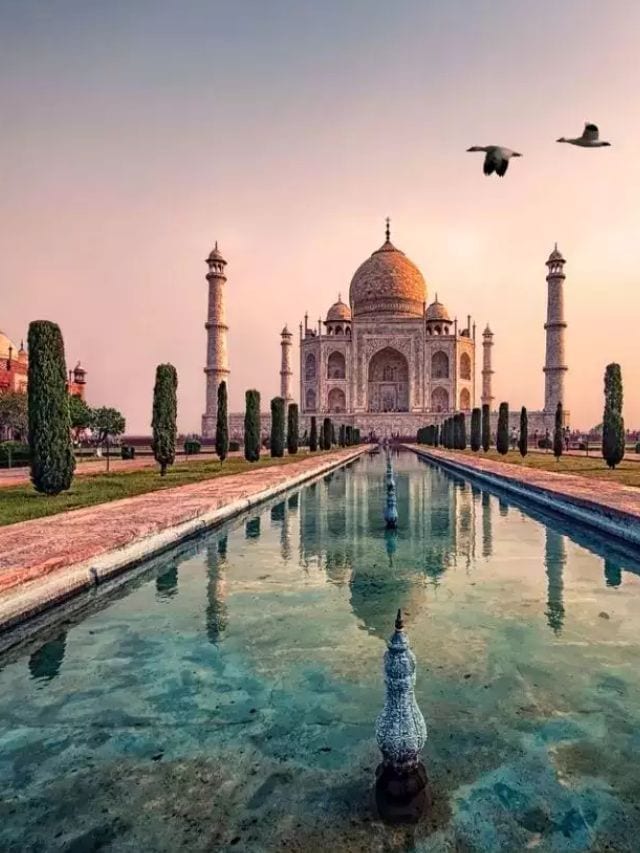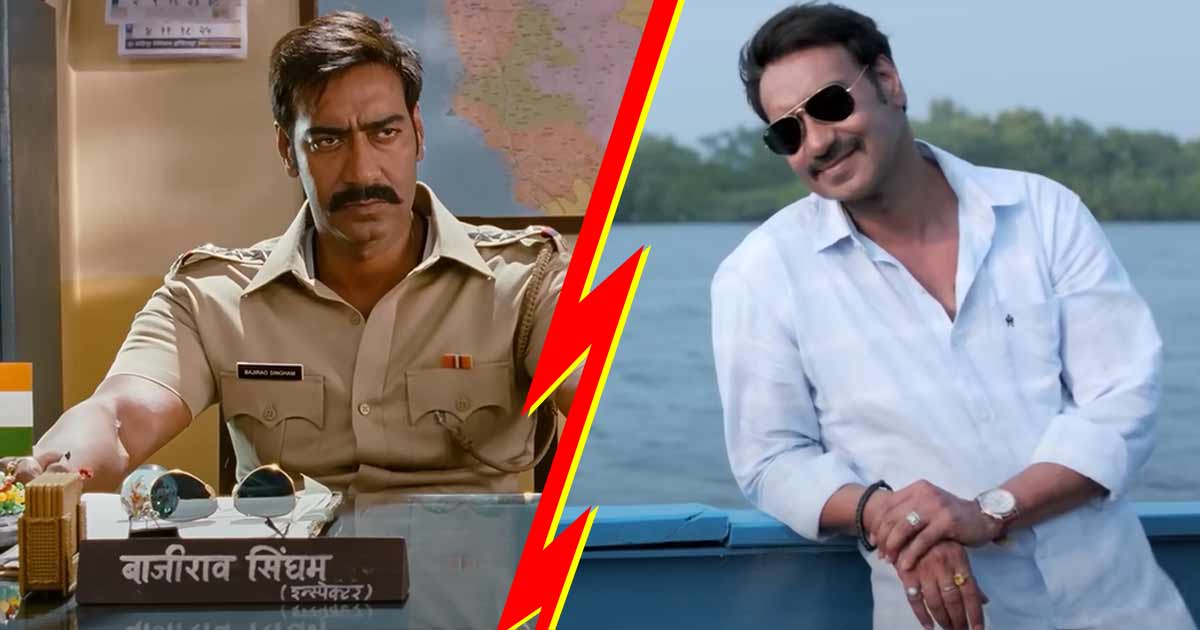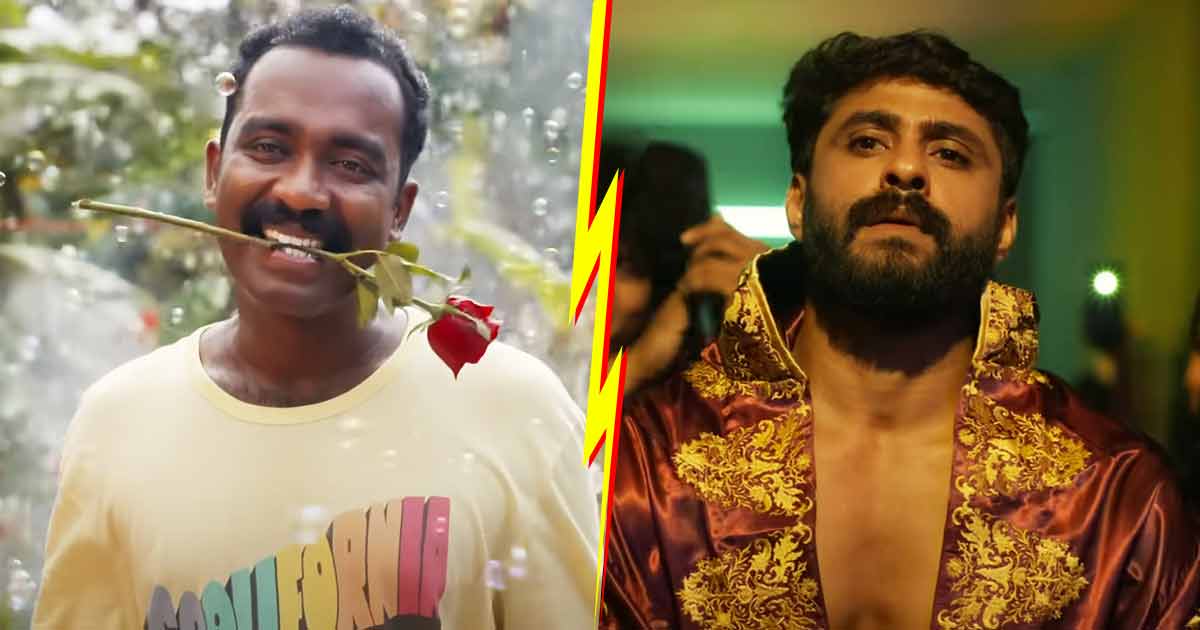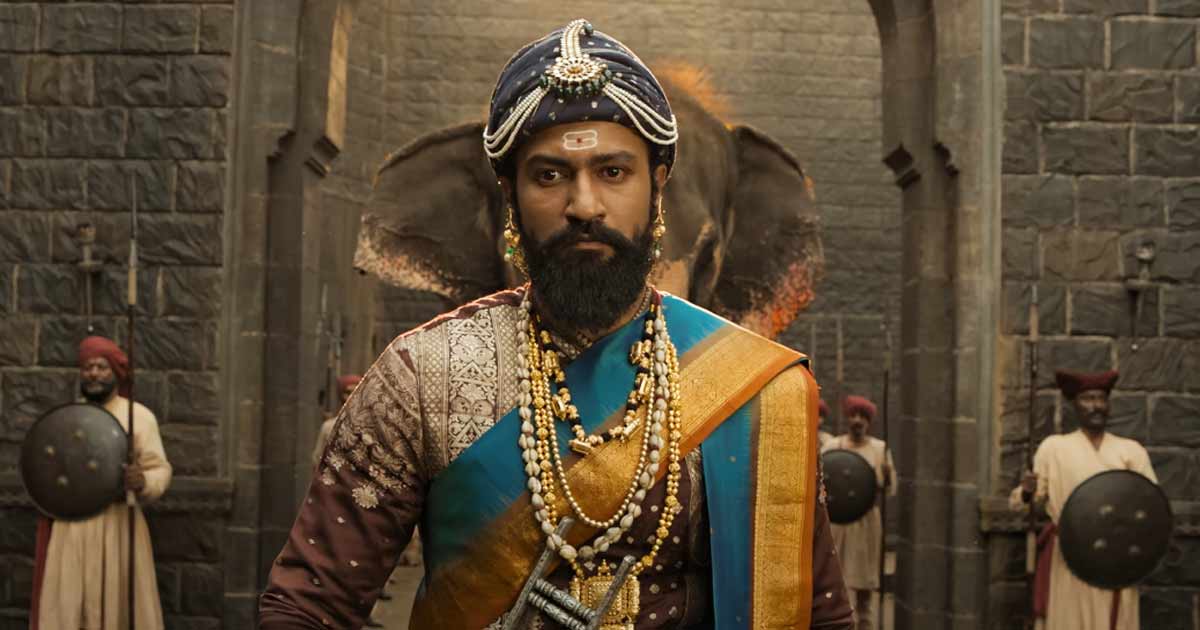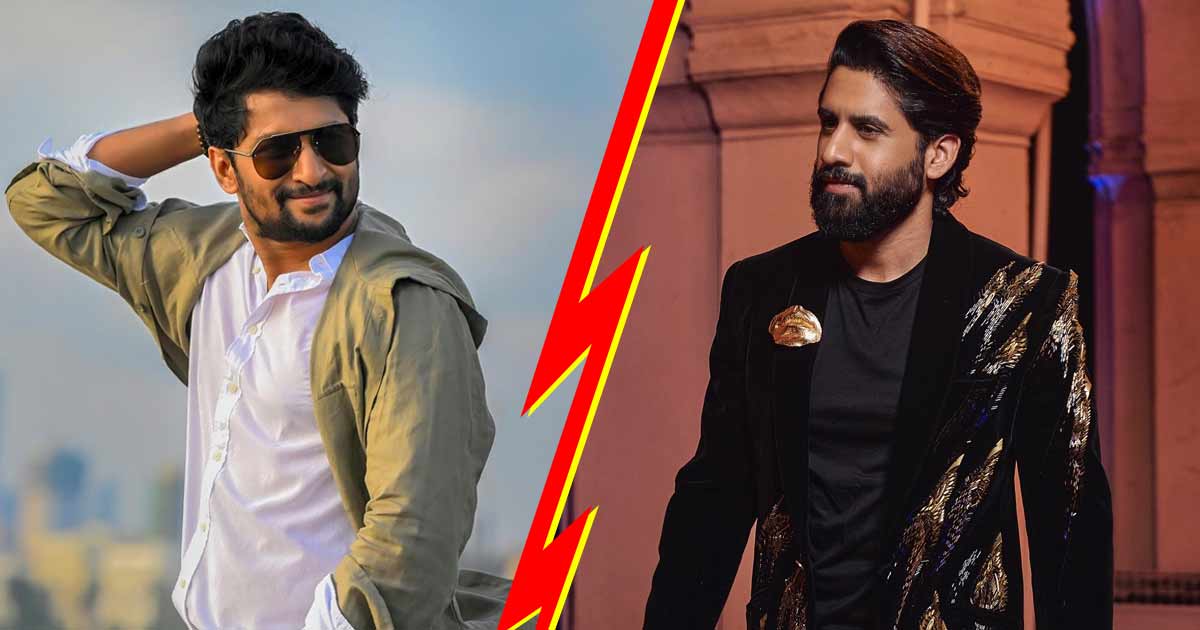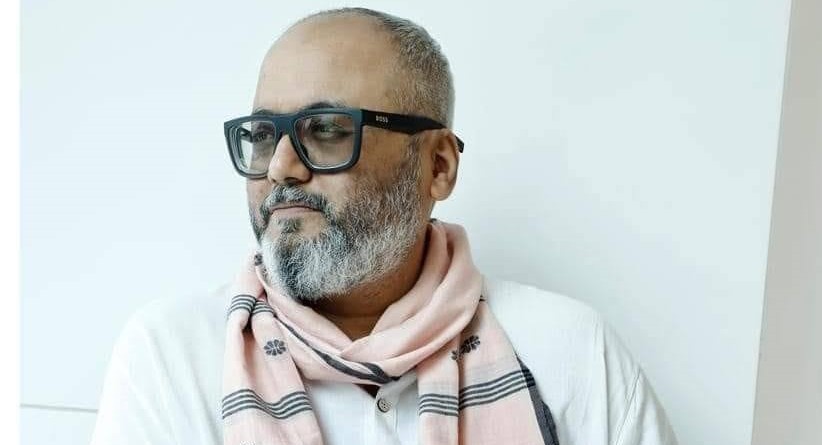
“I seek to infuse soul into whatever I am doing” – Manoj Tapadia
It is not possible to put somebody like Manoj Tapadia in a box. He started his professional journey as a copywriter in advertising, wrote dialogues and songs for several notable films, directed commercials for some of the biggest brands and is now, gearing up to make his first feature-length film as a director. The one thing, however, that comes across in everything he does is his love for telling stories.
In this interview, the writer-poet-lyricist-filmmaker talks about his long and eventful journey in the advertising and entertainment industry, overcoming the many obstacles he faced, collaborating with Kangana Ranaut on his debut directorial feature, memories of working with Ilaiyaraja, idolizing Shailendra, favourite campaigns, upcoming projects and more.
‘Bharat Bhagya Vidhata’, which is about to go on the floors in the next couple of weeks, marks your debut as a feature film director. The film, which is being produced by Babita Ashiwal and Adi Sharmaa, will feature Kangana Ranaut in the lead role. According to the press release shared during the announcement of the film, it highlights the contribution of the working class who work tirelessly behind the scenes. It has also been described as a ‘cinematic tribute to the unsung heroes’. The title has a patriotic fervour to it. How did you decide to make your debut as a feature filmmaker?
I had written the script sometime back and wanted to make a film out of it for a while now. Finally, after putting in a lot of efforts, things fell into place. We approached Kangana. She really liked the subject, idea and my approach to it. She agreed to be a part of it. I am looking forward to working with her on the film. I have known Adi since 2013. We had done a film together called ‘Maai’ (2013). I had written the screenplay, dialogues and lyrics for the film..
For years, you primarily worked in advertising. However, films kept happening in between. How do you look back at your journey in cinema?
My first film was ‘Cheeni Kum’ (2007). I wrote the dialogues and songs for the film. That’s when I learned how to write a screenplay. I wrote two screenplays thereafter. Followed by some more. Since then, it has been a struggle to make a film. The process of writing is highly enjoyable. Sometimes, it can get a little frustrating but it is also enjoyable. For a film to take off, a lot of things have to fall into place. In the past, there were a couple of occasions when I came very close to making a film. A couple of times, I backed out as I felt that it is not happening for the right reason. For me, things happening for the right reason is very important. A few times, things just fizzled out. I am very particular about things like how to start, where to start, what should be the first film. I wrote 7-8 scripts over a period of a few years. Finally, things have fallen into place and I am getting the opportunity to make a film. Satyajit Ray once said that for every film he has made, there are ten films he couldn’t. That is the kind of journey every filmmaker goes through. It takes a village to make a film. ‘Bharat Bhagya Vidhata’ required a lot of research. We spent a lot of time doing that. Then, I sat down and wrote the script. Adi was the one who initiated everything. A couple of years ago, he got me into Vipul Shah’s team to write something. That project didn’t take off. Meanwhile, I was trying to make a film on my own but nothing was happening on that front. Around 2015-16, I almost gave up on the idea of making a film. I thought let me stick to advertising. Too many factors come into play when you try to make a film. It is sustained effort. Nothing in life happens without putting in effort. Adi and Babita put in great effort to put this project together. They looked into all the logistics and even reached out to the actors. Writing the screenplay and dialogue for the film was much easier than mounting it. A producer’s contribution in making things happen is often overlooked. The producer is the most important cog in the wheel.
In the year 1997, you had arrived in Mumbai to become a lyricist. Though destiny led you towards advertising, you did write some songs later. ‘Khud Se’ from ‘Madras Café’ is one of the best songs you have written. It had some poignant lines like “khoyi si chandni bhi ho gayi hai bad-gumaan, ab to yeh zindagi bhi lagti hai bad-dua, zehreele zakhmon ki yeh jo kharaashein hai, koi to aake dekh le, Khud se taraashe hain”.
I am really happy to see somebody mentioning this song. I thought it went unnoticed. It was supposed to be a part of the film. Shoojit called me and said, “ek gaana hai, likhega kya?”. Shoojit and Shantanu briefed me about the situation. The character, played by John Abraham, has lost his wife and he feels responsible for it. He is consumed by loneliness and guilt. I wrote the song first and then, Shantanu composed a tune around it. It was great to see Papon singing it in the studio. As it was not there in the film, it did not become very popular. Though I have seen videos of Papon open his stage shows with this song.
‘Main Jo’ from ‘NH10’ was also a very good song.
Navdeep (Singh) and I go a long way. I had written the dialogues for ‘Manorama Six Feet Under’ (2007). I had also written a song (‘Tere Sawalon Ke’) for it. Navdeep and I have known each other since our advertising days. When he was doing ‘NH10’, my wife and I were pregnant with our second-born. Sudeep (Sharma) was already writing the dialogues for the film, so Navdeep asked me to write the songs. I was supposed to write all the songs. This was the first song I wrote. My wife got into labour pain and then, I could not work on the film anymore. Savera Mehta had composed a lovely tune. I wrote to the tune.
You wrote the dialogues and co-wrote the songs for R. Balki’s ‘Cheeni Kum’ featuring Amitabh Bachchan and Tabu in the lead roles. How did this film happen?
When Balki was planning the film, I had expressed my wish to write the songs. He was planning to re-use the tunes of some of the old songs by Ilaiyaraja. There came a time when I think, Tabu or someone = suggested they should get Gulzar saab to write the songs. At one level, I was disappointed as I wanted to write the songs. However, I was also very happy as I had always admired Gulzar, who apart from Shailendra, who has been an absolute favourite, had inspired me a lot. I thought if I just sit in the music sittings, I will get to learn a lot. Balki approached Gulzar saab but at that time, he was busy with ‘Guru’. Sunil Manchanda, the producer of ‘Cheeni Kum’, had earlier produced ‘Tere Naam’ (2003) and ‘Salaam-E-Ishq’ (2007). Sameer was the lyricist on these very successful films. On his suggestion, Sameer was brought on board to write the lyrics. But by that time, I had written a lot of stuff and would keep narrating them to Balki. When music sittings would happen, Sameer would write something which Balki would disagree with. The sur of the film was very different written from how Sameer was seeing it. Dialogues were very modern and conversational. Balki would invariably ask me to share what I had written. Sameer was gracious enough to accommodate that. Balki wanted ‘Cheeni Kum’ to be repeated five times in the title track. I wrote something, some antara came from Sameer. ‘Sooni Sooni’ was completely written by me. It was the first song I wrote in my life. We worked on ‘Jaane Do Na’ together but Sameer’s contribution was more. ‘Baatein Hawa’ had a unique approach. It was like blank verse with a lot of dialogues. I was in Lintas at that time. Balki told me he needed a song that would show how whatever Buddhadev Gupta (Amitabh Bachchan) is saying is faff. I cracked the line, “baatein hawa hain saari…”. It was Balki’s prerogative that we should have shared credits. We did the sitting together for a couple of songs. Some lines were picked from what Sameer said, some mine.
How was the experience of working on the film?
Fantastic. The whole process of how I ended up being involved to what happened during and after is a story in itself. Frankly ‘Cheeni Kum’ just fell into my lap. I was at the right place doing the right thing.
Before working on the film, I had not even read a screenplay in my life. I was not even thinking about getting into films as a writer or director. All I wanted to do was write songs.
I was a little iffy as I didn’t fancy myself as screenplay or dialogue writer but balki instilled that confidence in me. I agreed but on one condition- I get to write songs. Balki happily agreed. Then, the process began. It was two years of great fun with one of the brightest minds in advertising. We had great tuning. I could understand where he was coming from and would give words to his thoughts. At times, I would come up with something and he would twist it around. Slowly, the characters developed. The greatest thing about ‘Cheeni Kum’ was its tonality. That was totally Balki’s idea. The dialogues were a mix of Hindi and English like we speak in urban India. We kept writing and rewriting for two years before we finally got Mr. Bachchan’s dates. While writing the dialogues, I was able to find some loopholes in the screenplay which I brought to Balki’s notice. We debated and found solutions and fixed them.
When two writers are sitting and exchanging ideas, it is the most fascinating process. We shared a very good rapport. We would have healthy debates and Balki would indulge me.
While shooting, I realised one needs a lot of focus and stamina to see a feature film through as unlike ads which finish in say 4 days max, features take 40 or more!
I have great memories of shooting in London, interactions with Mr. Bachchan, my own birthday celebration etc.
Post production was another interesting experience. Seeing Mr. Bachchan dub is a masterclass in itself. And then the screening!
Frankly I didn’t enjoy it as much because I wasn’t looking at the screen!
I was looking at the audience in the dark. Are they laughing at the punchlines? Are they crying? But my family, friends and colleagues enjoyed it a lot and all of a sudden, I was inundated with calls after the release! Offers poured in. I wasn’t actually ready for it.
How did your journey in advertising begin?
I am primarily a poet. But somehow, I felt nobody reads, hence the best way to reach the audience and readers is through songs. So, I landed up in Mumbai to become a lyricist. But since film industry was not too structured in the 90s, I had an alternate plan to join advertising for sustenance while struggle in Hindi film industry for that big break as the lyricist. I got sucked into advertising and almost gave up on my dream of becoming a song writer. But then Lintas happened. And I was lapped up in Lintas. I joined there as a senior writer and rose to handle the Global creative duties of a flagship Unilever brand. I obviously ended up working with Balki.
What’s your story? Where were you born and raised? How did you discover advertising?
I was born in Rourkela, Odisha. My father, who was a timber merchant, was settled there. In 1986, I lost my father. I was Ten-year-old then. I had to shift to Raipur to stay with one of my uncles. We had a big joint family. In those days, anybody would get absorbed anywhere. Today, we mostly have nuclear families and people are thinking only about themselves. My sisters were staying with my own uncles. I was staying with my father’s cousin. In that house, there were 15 people. It was a house of two brothers. Many people would be coming and going. Those were simpler, beautiful times. Nobody would object. I finished my graduation and failed in every competitive exam. In school, I was an above-average student and did pretty well in studies. I could not clear any engineering or hotel management exam. I was very poor at the aptitude test. I was forced to think what I could do. In school, I was very active on the stage. Except for dancing, I have done everything. I was a part of debates, extempore, quizzes, drama, singing, mono act and plays. I had started writing by the time I was in the seventh grade. I got into reading very early in life. I was always fascinated by stories. When I was in the seventh grade, I was introduced to Premchand. During the summer vacations, I spent all my time reading. I would read both Hindi and English literature. I even enjoyed reading history books. During my growing up years, there was a culture of listening to old songs at my house. The radio would be played in the house all the time. My father and all my uncles loved music. The music they would play on the radio was getting inside my ears and consciousness right from my childhood.
I thought why I liked certain songs more than others. I realized I liked them because of the way they were written. This realization happened when I was in my teens. I started writing quite a lot. Writing was for pleasure. I would not share what I wrote with most people as I thought most people would find it boring. I would only share it with one or two people. Poetry was only for myself. I thought I will try to become an engineer or something. Poetry does not fetch money and I had a lot of responsibilities on my shoulders.
When I was in the first year of college, I discovered advertising. After that, I took up science. However, I graduated in commerce. I told my family that I will try to get admission in an MBA college after completing my graduation. I realized that I won’t be able to clear it. Even if I tried for a few years, I wouldn’t be able to clear the CA exams. Around the time I finished college, the software boom happened. I came across a computer course for Aptech. It was one-and-a-half-year long course where one would be taught programming. I realized that rote learning was getting me marks but I was not learning anything. I am not even enjoying it. I was forced to think what I could do. Accidentally, I discovered advertising. A friend, who had left Aptech, had joined a company called TULEC- Tata Ulysis Ltd. had come up with their own software training module. The friend, who was a student and faculty member at Aptech, joined TULEC as a course coordinator. He knew that I was into writing from my school days. His boss had asked him to get some local ads written. All that they would get was material from Bombay which had to be put on hoardings. My friend called me up and said, “why don’t you help me write something?” I decided to give it a shot. I wrote three ads. His boss loved them and put them in a newspaper. It generated a lot of enquiries. His friend asked how much I charge for it. I said, “what charge? Atul asked me to help you, so I did.” He told me, “if you have the talent and skill, never do anything for free”. That was the first lesson in professionalism I got. He paid me Rs. 1500. I got Rs. 500 for each ad. It was a princely sum in 1995. I thought writing is only about literature and journalism. I didn’t want to get into those areas. It would have been a long road. I needed to earn. Elder siblings were married by then. I had to look after my younger sister and mother. I needed to start earning fast. I went to the local agencies and requested them to give me an opportunity. They said that they don’t do anything original there and everything comes from Mumbai. A couple of people warmed up to me. They took me to some retail shops. I wrote ads for them and made some money. I decided to go to Mumbai. The goal was to become a lyricist. I needed a place to stay and money to sustain myself. The plan was to join an advertising agency, save some money and struggle in the Hindi film industry as a lyricist.
So you landed up in Mumbai? Without any support? How did you survive?
I came to Mumbai with nothing. I used my savings and some jugaad to stay with brother-in-law’s cousin’s house in Bhayander. We used to live in a chawl.
Anand, a cousin of mine, was in Vikhroli at that time. I didn’t want to burden him as I knew he was trying to build a career. I called him a couple of weeks after I moved to Mumbai. He said, “what are you doing in Bhayander? You should stay with me.”
Two other people were staying with him- Omar & his maternal Uncle Sheikh Ghalib Hussain. All from Rourkela. Omar heads a French tech company called Atos now.
Anand and Ghalib uncle were into marketing and sales. So, we were in similar fields. I told him that I will come and stay with him on the condition was that I will pay for my own stuff. Anand agreed and I moved to his place. It was a one-room and kitchen kind of a setup. For a month or two, I was jobless. One day, Ghalib saab came across a job listing in MidDay which was put up by a small agency in Ghatkopar. I applied for it and got the job but I wasn’t too keen. I continued my search to join some big agency.
I reached out to some of the big agencies but nothing worked out. 1997 was a year when recession had hit very badly. Every agency was throwing out people. I got rejected everywhere. Doubts crept in. I felt I don’t have it in me. I wasn’t as smart, urban and polished like the admen I would see in these agencies. Though I was from English medium, my English was very weak.
I went to Leo Burnett. It had a new creative director Preeti Nair. Preeti was extremely encouraging. She went through my portfolio which had local ads and poems and said, “You are a very good writer. Your poetry has not only beautiful words but great imagery and new thoughts and insights. Advertising is a slightly different stream. Why don’t you start with a small agency? You need to be practical.”
Her advice helped me a lot.
Paying heed to Preeti’s advice, I joined that small agency in Ghatkopar which was getting insolvent.
Later Omar helped me get an interview at Concept communication. From concept, I joined Interact Vision, later FCB ULKA and finally Lintas.
R. Balki got his childhood hero Ilayaraja to do the music for the film.
Balki was a huge fan of Ilaiyaraja. I also got the chance to interact with PC Sreeram, Legend has it, he is the only DOP (director of photography) on whose name people would throw coins at the screen. PC and I got along famously. We used to joke about a sequel to ‘Cheeni Kum’ that would be called ‘Thoda Aur Cheeni Kum’. With Paresh Rawal’s character and the maid-servant having an affair and AB and Tabu objecting to it. We would crack jokes and laugh. PC was great fun.
The tunes used in ‘Cheeni Kum’ were the ones Ilayaraja had used in some of his films in the past. While the title track and ‘Sooni Sooni’ were modelled on ‘Mandram Vandha’ from ‘Mouna Raagam’ (1986), the tune of ‘Kuzhaloodhum Kannanukku’ from the Tamil film ‘Mella Thirandhadhu Kadhavu’ (1986) served as the base for ‘Baatein Hawa’. The tune of ‘Jotheyali Jothe Jotheyali’ from the Kannada film ‘Geetha’ (1980) was used to create ‘Jaane Do Na’.
Balki said that Ilaiyaraja has composed more than 800 songs but people living in the northern, western and eastern part of the country have not heard them. One of the top music duos of the ‘80s and the ‘90s had lifted off many of Ilaiyaraja’s tunes and used them in Hindi films. He was sure about getting Ilaiyaraja and PC Sreeram for the film. They were his heroes when he was growing up. I had gone to Chennai when they were modernizing the tracks. In Gemini Studio, Ilaiyaraja had a sitting room to himself. That music room is one of the most spiritual places I have been to. It was a seven-day thing which Balki and I did. We stayed at the Park Hotel in Chennai. I distinctively remember my first meeting with Ilaiyaraja. We had breakfast at the hotel but when we met Ilaiyaraja, he insisted on us having the food in his tiffin. His tiffin had the world’s softest idlis. My stomach was full but since Ilaiyaraja insisted, I had those idlis. It was like having prasad offered by a great man. It was a great experience to see live musicians doing the tracking. They were recorded at Yash Raj Studios in Mumbai.
When you got into advertising, Hindi had started being used extensively in advertising in India thanks to the efforts and vision of individuals like Piyush Pandey.
My journey in advertising started in the year 1997. In the ‘80s, when television sets were introduced in India, advertising started changing. For the longest time, it was English-centric. Piyush changed everything. In fact, Piyush’s Fevicol ad made me think about pursuing advertising. When I met Piyush at one of the Brand Equity Awards, I told him that because of people like him, people like me were surviving. He guffawed. TV became big in India in the ‘90s. India-centric thinking started becoming big. In fact, when the dot com boom happened, a lot of people left agencies and started joining dot comes. At that time, I had some crazy offers. All of a sudden, I had become an asset. That was because I was a bilingual writer. I could write in English and Hindi and think in Indian. My thoughts were very rooted. All of a sudden, I was flooded with offers. Finally, I joined Ulka.
When did you get introduced to poetry as a child? What made you develop an interest in writing songs?
Ever since I was born, I was exposed to music as the radio would be on all the time. Binaca Geetmala and Vividh Bharti introduced us to so many songs. In the morning, the elders in the house would have their cup of tea while listening to Talat Mahmood’s ghazals. One of my sisters would be in charge of playing the radio. We also had record players back then. I have grown up listening to songs composed by the likes of Madan Mohan and Roshan. Because of this, I developed a good taste in music. If not classical, I heard a lot of semi-classical music. When I started getting interested in literature, I went back to my roots. I realized I liked certain songs because of the way they were written. In the film ‘Music & Lyrics’, the character played by Drew Barrymore says, “music is my girlfriend, lyrics is like the wife that stays with you”. Early on in my life, I realized I am very attracted towards words, turn of phrases and vocabulary. Older songs had a lot of literature. Sometimes, I would not know the meaning of certain words but hum them.
One of my favourite songs has been ‘Wahaan kaun hai tera musaafir” (‘Guide’). I believe there has been no greater lyricist in Hindi cinema than Shailendra. I am a devotee of Shailendra. For me, Shailendra is an equivalent to Premchand. Shailendra wrote simple words but with profound meaning and deep philosophy in them. Of course, I had discovered Kabir, Raidas, Amir Khusrou to you know modern poets and writers like Dinkar, Bachchan, Makhan Lal Chaturvedi, Subhadra Kumari Chauhan to Amrita Pritam, Dushyant Kumar, Kunvar Nayaran, Mangesh Dabral etc. The list is endless. But It’s the film music which got me interested in poetry.
When I was in the sixth or seventh grade, I had heard ‘Mera Kuch Saamaan’ (‘Ijaazat’) for the first time. I would listen to it on repeat mode. It felt great but was too abstract and personal for me to understand. It got me hooked to a different kind of writing. That’s how I discovered Gulzar saab. With time, I explored the work of other greats like Sahir, Yogesh, Jaanisar Akhtar and Raja Mehdi Ali Khan etc.. Mirza Ghalib, the TV show made by Gulzar saab, inspired me greatly. Very few poets had Ghalib’s mysticism and multi-layered thinking. But one of my favourite sher is by Momin Khan Momin, “Tum mere paas hote ho jab koi doosra nahin hota”. I heard this sher when I was in the sixth grade but discovered its beauty years later. Apparently Ghalib was so enamoured by this sher, he is supposed to have told Momin, “Mera poora diwan le lijye, badle mein yeh ek sher mere naam kar dijiyee”.
Since the last couple of years, you have been directing advertisements as an independent filmmaker. You have a company named Marble Jar Films. When did you decide to quit agency life and branch out as a filmmaker?
In 2011, I quit my job. I decided to focus on direction. I would direct commercials and give myself some time to write feature films. While doing a full-time job, making time to write scripts was difficult. There was an appraisal where they asked me what I wanted to do. I realized I needed to make a choice. I thought I will burn out very soon at this rate. I decided to quit agency life and became an ad filmmaker. I joined hands with a dear friend of mine called Khalil Bachooali. He was also starting out at that time. He had a company called Off Road Films. I joined him as an exclusive director. We were together for 10-11 years. I thought I needed to explore a little more and work with different kinds of people. After a while, I launched my own company Marble Jar Films.
In the advertising world, you worked on so many successful campaigns over the years. Is there any campaign which is close to your heart?
We did a campaign called Condom Bindaas Bol for USAID. I was very satisfied with the way we conceived and executed it. Lifebuoy ‘Little Gandhi’ was a path-breaking campaign. It won us a lot of awards and accolades. Similarly during the outbreak of swine flu we had made a film which was quite interesting and unique. The film we did for NACO shaped up quite well. It had Pawan Malhotra in it. I cracked the idea and directed the ad as well. My team helped me write it. I am really proud of that work. The film I directed for Samrat Atta went viral. I am quite proud of the HDFC Cancer Fund Film written by the brilliant Bobby Pawar. He was extremely sweet and gracious. He saw a film of mine and remarked that I capture realism very well. He wrote the script and gave it to me. It’s called ‘Dear Dad’. We had to make a 60-second film but we ended up making a four-minute film. It won an award in film craft category. I recently shot something for College Dekho which I quite liked. The two-ad campaign that I directed CIPLA were received quite well. We shot them in Mussoorie. Did some good work for Pepsodent, Dove, Dettol, Relaxo, Star etc. But one of the works that am really proud of is for a start up brand called BRWN. It’s one of my best work.
What is your goal as an artist?
There is no goal. Life is a journey for me. We all know what’s the final destination. I just want to enjoy this journey while creating something that makes it a slightly better place than what I got. I just want to be honest with my work. I want to say something rather than just entertain. Infuse soul into whatever I am doing. I wish to improve my craft every single day, every single moment. There is no end to enhancing your craft. Some people dream of making tons of money. Some wish to win an Oscar. I never had that kind of ambition. All I have is gratitude. Because at every stage, I have found support. People had more faith in my talent than I did. A lot of people have told me I under-estimate myself a lot. I still have so much to learn. More than a more skilful person I think my goal is to be a better human being. Because what you create for outside world is just a reflection of your inner world. In that sense I want to be genuine. Not for others but for my own self. You know I read somewhere, “ One who has magic, doesn’t need tricks”. I so believe in it.
What, do you think, are your biggest strengths as a filmmaker?
I think I can infuse emotions. I can bring in a sense of authenticity and realism, thereby making any piece of communication more relatable and believable. I can tell a story in a simple but not simplistic manner. There is a difference between the two terms. Simple is actually very layered but to the audience it appears simple. Hrishikesh Mukherjee films are simple not simplistic. Simplistic films are pretty much A for apple. Bland. They have no repeat value. Where as simple but layered stuff has repeat value. Each time you revisit, you discover something new.
What are you doing next?
Many things actually. There are many stories which I want to tell. Talks are on. I juggle between advertising and feature films in various roles and love it. Advertising is pure love for me. It has given me a lot. I plan to strike a balance between films and advertising. I will make a film only when I have something to say. I would want my films to have thought, subtext and layering. I don’t want to make films just for the heck of it. I would like my producers to make a lot of money so that they can fund my other films. The idea is to tell stories which connect with the masses but don’t take the audience’s intelligence for granted. I gun for the feel. If I get the feel right, I get everything right. Once when I had the opportunity to meet Gulzar saab, I requested him to share some tips. He told me exactly the same thing. He reiterated what I actually believed in- Go for the feel. He said rest everything will take care of itself. Some singers do not sing in ‘sur’ but you like their voice and the way they emote. Like folk music. They have some feel even if you don’t understand the language, you connect. Human interest stories fascinate me. They could be of any genre but they should have depth. They should provide you with some food for thought. For example – A film like ‘Taare Zameen Par’ ticked off all the three Es of communication- engagement, entertainment and education. More recently Lapataa Ladies was a fantastic film, which not only entertained and engaged me but educated me a lot.
Publisher: Source link
